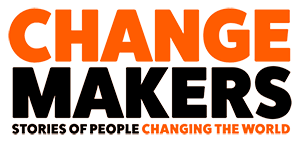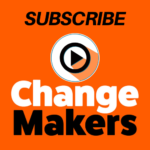How the US Election is all about Community Organising
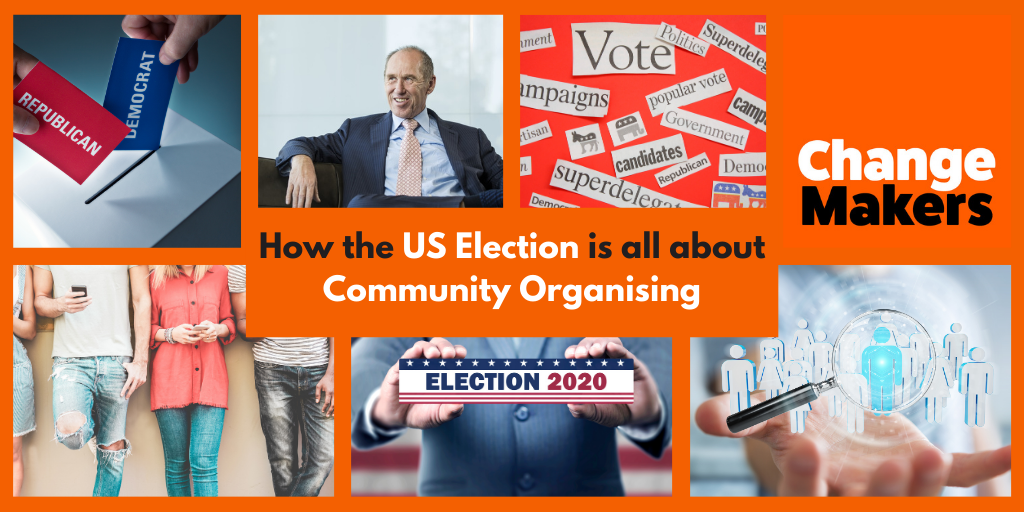
While the drama of the President’s coronavirus diagnosis, “Red Mirages and Blue Shifts” and stolen postboxes are catching the headlines in the US Elections, it is community organising that is likely to make or break the result for the Democrats (and let’s face it – for democracy).
Even before COVID-19, two new (old) approaches to social change were adapted to electoral politics. One is called Deep Canvassing and the other Relational Organising. COVID-19 created barriers to door-to-door outreach that saw Relational Organising take the edge as the dominant field strategy for the Democrats. That said, Deep Canvassing is still critical and could determine the election in its own right (keep your eye on Pennsylvania).
Both of these approaches source their origins in the work of Saul Alinsky and the community organising traditions of the US. The approach has echoes in the 2008 Obama strategy, with some interesting differences.
Deep Canvassing
Faced with the limits of non-compulsory voting, most voter communication focuses on ‘Getting People To Vote.’ There is a belief that persuasion – that is changing people’s minds – is virtually impossible and instead winning is based on getting more of your supporters to ‘turn out.’
Deep Canvassing challenges that logic. It is a persuasion tool, created by David Fleishcher, that translates the organising approach of the Industrial Areas Foundation (IAF) to electoral politics. David was a community organiser who shifted to working on marriage equality – where he wanted to create a strategy that could change people’s attitudes one to one, face to face.
Deep canvassing was the conversational tool he used to talk to people on doors, where the LGBTQ+ movement and its supporters undertook one-to-one conversations focused on listening, personal relationships and story. At the doors, canvassers asked questions and told stories about LGBTQ+ friends, children, loved ones and what equality meant to them. These conversations were highly effective.
Deep canvassing was adapted to an electoral context, by groups like Changing the Conversation Together. It’s director Adam Barbanel-Fried was a long time community organiser with the IAF, tested this approach in the 2018 Midterms and is now working on shaping the Pennsylvania race through canvassing and door knocking using COVID-19 safety protocols (see their video here).Deep canvassing demonstrates that persuasion is possible. It invites people to change their minds about elections through powerful conversations conducted face to face.
Relational Organising
Relational organising is different. Relational organising blends digital and more physically distant communications tools where volunteers and activists focus on reaching out to their personal friends and social networks.
In the dying days of the Clinton campaign, staff like Michael Luciani described learning that volunteers were much more effective at getting out the vote when they talked with people they knew.
Following the election he took that idea and designed an app that would allow people to easily communicate with their personal network about politics in ways where that work could be tracked and measured at scale. A digital flurry insured, with a bunch of Democrat friendly apps designed to help people ask and influence their own connections.
This was a shift. Up until then volunteers were enlisted to call through lists of people who were primarily strangers. Applying this embryonic form of Relational Organising, people would still focus on contacting large numbers of people – but their focus was on people that they already knew.
Relational organising was already a ‘thing’ before COVID. But when face-to-face contact fell away, digital communication became a preference. Zoom Relational Meeting trainings and Zoom house meetings (where small groups of people who often know each other talk about issues and concerns) became a powerful strategy.
The strategy is the primary Democrat approach in a variety of battleground states, like Wisconsin. Relational organising advocates see the approach connected to major social movements like Black Lives Matter and argue that it is building a base of movement relationships capable of responding to challenges such as if Trump refuses to leave office. However as the election loomed, some Deep Canvassers have criticised Relational Organising’s reliance on digital tools. People like Adam Barbanel-Fried have expressed fear that a fully online campaign leaves the physical streets empty of the campaign, providing free reign for the Trump campaign to dominate. Indeed, in contrast to the Democrats, Trump’s campaign is undertaking extensive door-to-door canvassing (in masks).
This US Election has the highest of stakes, and is being waged under the most difficult conditions. No matter what happens – there will not only be an impact around the world, but there will be powerful lessons about how to make change.
Usefully the ChangeMakers Organising School is hosting a week’s training on the US Election in our next Season, which begins this Thursday. Speakers include Hahrie Han on Relational Organising, Adam Barbanel-Fried on Deep Canvassing and James Slezak from Swayable on the tech behind these strategies. Register here to get the details.
And keep your eyes out. There is a lot to learn from what happens on 3 November.
Solidarity,
Amanda Tattersall
Host, ChangeMakers
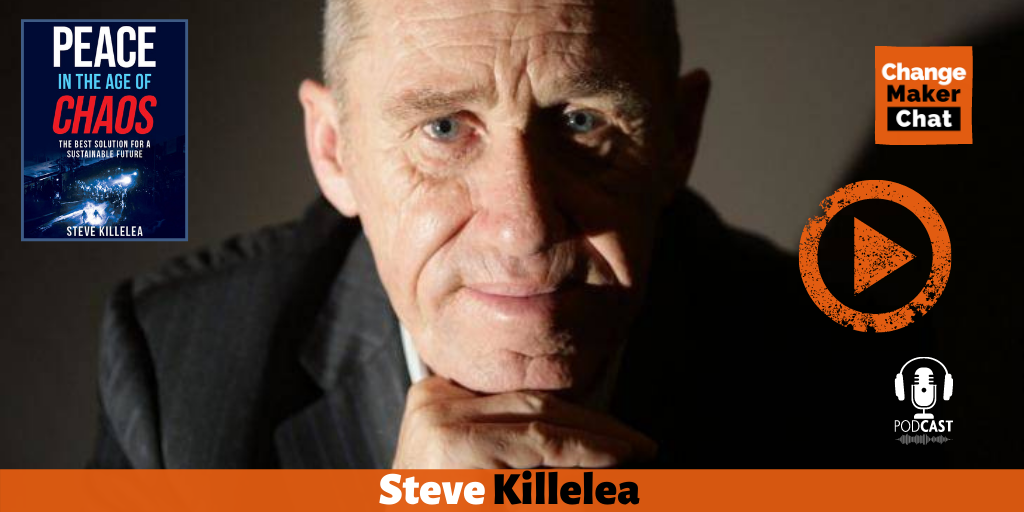
Steve Killelea is one of Australia’s most successful businessmen and a self-described peace maker! In this Chat we talk about why he combined these two passions. We explore how his peace work developed from an idea hatched while working in Africa, to creating the largest index for peace in the world!
Listen by clicking play above, or listen via an app on Spotify, Apple, PodcastOne or Stitcher – or on most other podcast apps by searching “ChangeMakers.” Or use our RSS feed.
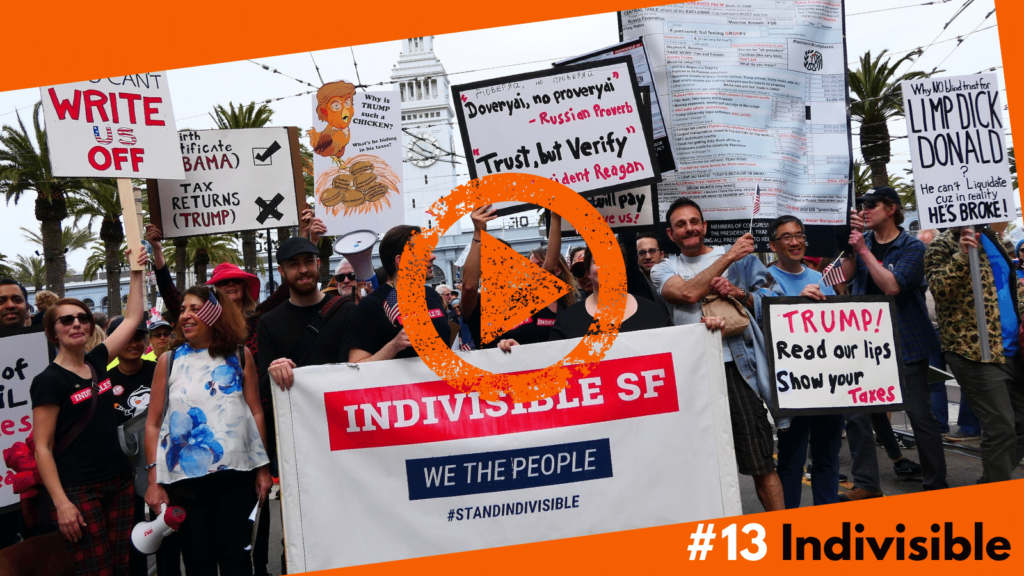
This is the origin story of the largest anti-Trump organisation in America and how it built a mass based local movement to save affordable healthcare.
Listen by clicking play above, or listen via an app on Spotify, Apple, PodcastOne or Stitcher – or on most other podcast apps by searching “ChangeMakers.” Or use our RSS feed.
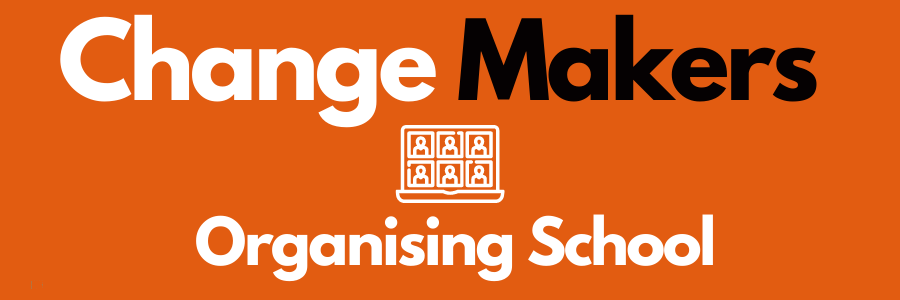
Building power to change the world is a dynamic process. Which is why we run training in the art of change making! In these pandemic times – we have taken these ideas online with a group of Australian organisers, and are producing a new free series of training.
Please note – this season of training runs weekly until December 3. You only need to register once and we’ll send weekly updates with info about upcoming sessions. Don’t worry if you missed the first few weeks – each session is self contained and you’re very welcome to join any time!
Powerful relationships across distance and difference aren’t easy. Throw an unprecedented crisis in the mix, and they can feel impossible. But the kind of dramatic social change required to overcome our fears begins with trust. And trust begins when we know each other.
Every Thursday evening we will run a 1 1/2 hour training online on Zoom – at 6pm AEDT. We’re community organisers, and while we love all kinds of change making, our focus is on building relationships and people power. We value leadership development and, through the training, we seek to explore and understand concepts like power, action, organisations, narrative, relationships and action as the bedrock for building a democratic public life.
We aim to run a diverse training space that is inclusive, participant focused. Every session includes 2 break out windows for participants to reflect on and apply the content, and to connect with changemakers from across different social movements.
Register now!
P.S. Each week we’ll send email updates about the content, resources, and any recommended pre-reading. Please make sure your Eventbrite emails aren’t going to junk
Join our weekly email list to hear our latest musings, podcasts and training. Click on this button to subscribe:
